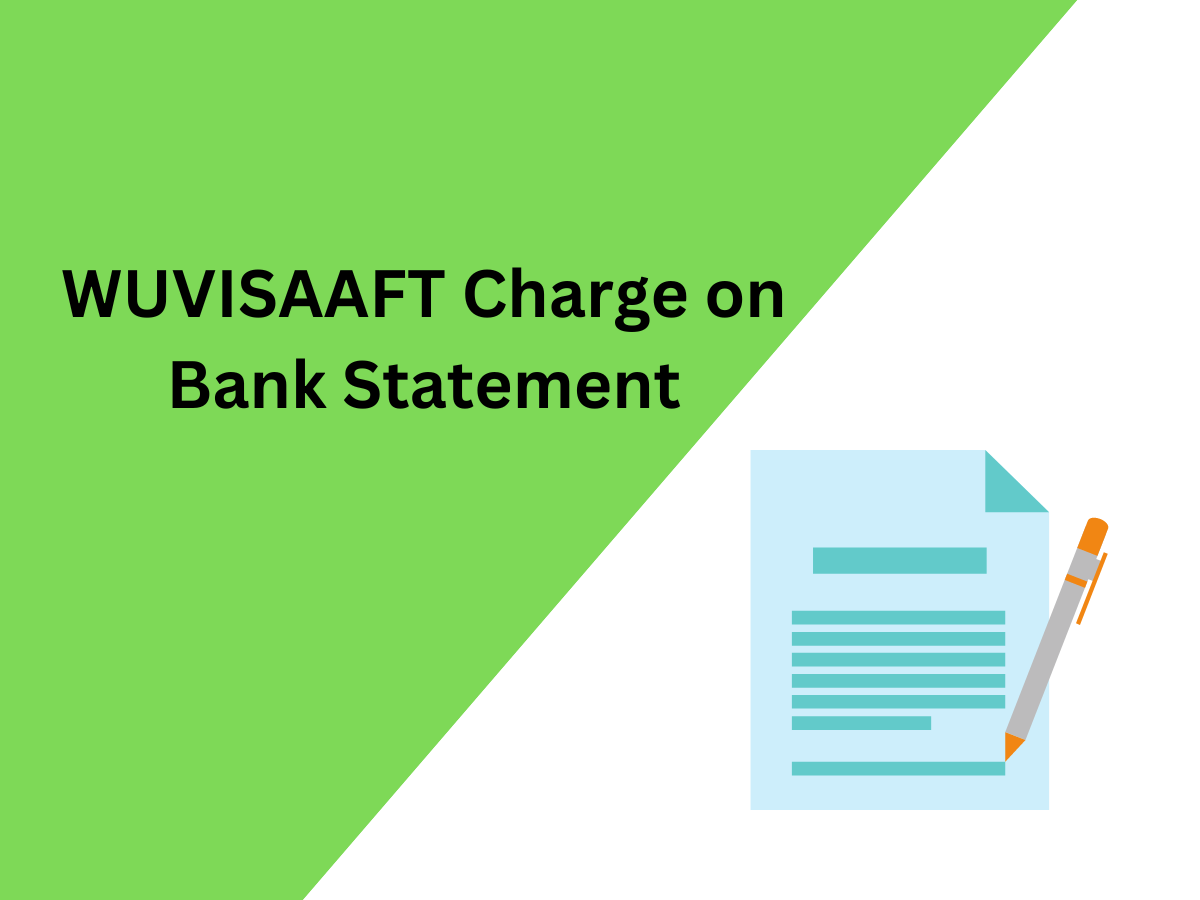
What Is the WUVISAAFT Charge on Your Bank Statement?
Have you been meticulously scanning your bank statement when suddenly, amidst the various entries, a peculiar charge catches your eye? Labeled “WUVISAAFT,” this enigmatic entry leaves more questions than answers. For countless online shoppers, unexpected charges can be both confusing and alarming. This comprehensive guide aims to demystify the WUVISAAFT charge, ensuring you’re equipped with the knowledge to identify such entries and take appropriate action.
Understanding the WUVISAAFT Charge
The acronym “WUVISAAFT” at first glance appears cryptic, prompting immediate concern from many who encounter it on their bank statements. It’s important to remember that understanding the specifics behind this charge is key to managing and overseeing your financial transactions effectively.
Breaking Down the Acronym
WUVISAAFT isn’t a standard or widely recognized abbreviation; hence, it doesn’t point towards an obvious merchant or service provider. Typically, unexpected acronyms or codes in your bank statements could refer to:
- Payments to digital service platforms: They often use abbreviated or coded names for billing purposes.
- Subscriptions or memberships you’ve forgotten about: These are recurring payments that might not immediately ring a bell.
- Foreign transaction fees or purchases: Sometimes, international transactions appear under codes or abbreviations that reflect the currency exchange or transaction process.
Possible Scenarios
- Automatic Renewals: In the digital age, we sign up for numerous services, from streaming platforms to online magazines. These services often come with auto-renewal clauses that can slip our minds, leading to unexpected charges.
- Trial Subscriptions: Many services offer free trials that require entering credit card information. Without cancellation, these free trials can convert into full subscriptions, leading to charges such as WUVISAAFT.
- Miscategorized Transactions: At times, a vendor or company name may be abbreviated or miscoded by the bank or financial institution, resulting in an unfamiliar charge description on your statement.
- Fraudulent Activity: Although less common, unrecognized charges could indicate fraudulent activity. If the charge doesn’t connect to any of your expenditures, immediate investigation and action are necessary.
How to Investigate and Address the Charge
Review Your Subscriptions and Recent Purchases
Begin by cross-referencing the WUVISAAFT charge with your recent purchases or subscription renewals. Often, the charge could correlate with a transaction you authorized but forgot about.
Contact Your Bank
If the charge remains unidentified after your initial review, your next step should be to contact your bank or credit card issuer. They can provide more details about when and where the charge originated, helping to jog your memory or confirm suspicions of fraud.
Check for Fraud
In cases where the charge remains unaccounted for, it’s crucial to consider the possibility of fraud. Here’s what you can do:
- Report the suspicious charge: Immediate reporting can help mitigate potential financial implications.
- Monitor your accounts closely: Keep an eye on your bank and credit card statements for other unusual activities.
- Consider changing your passwords: To ensure the security of your online accounts, update your passwords and enable two-factor authentication where possible.
Prevent Future Surprises
To avoid future shocks and surprises on your bank statement:
- Track subscriptions: Utilize apps or manual tracking methods to keep an eye on all your subscriptions and recurring charges.
- Read terms and conditions: Before signing up for free trials or services, understand the financial obligations and the process for cancellation.
- Regularly review bank statements: Make it a habit to scrutinize your bank statements monthly to catch and address any unfamiliar charges promptly.
Wrapping Up
Encountering an unknown charge like WUVISAAFT on your bank statement can be unsettling. However, with a systematic approach to investigating and understanding your financial transactions, you can demystify these charges. Whether it’s an oversight on your part, an error in transaction reporting, or a sign of fraudulent activity, staying vigilant and proactive is your best defense. Remember, in the complex world of online shopping, knowledge, and attentiveness are your most valuable assets